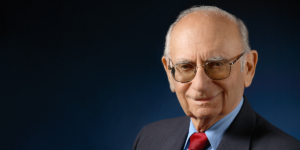
Class of 2022 Mork Family Department Graduate Stephen Quiton. Image/Stephen Quiton
Class of 2022 graduate in the Mork Family Department of Chemical Engineering and Materials Science Stephen Quiton has been awarded a National Science Foundation Graduate Research Fellowship (NSF GRFP) for his research into computational simulation and prediction of chemical reactions. Quiton has been working in the lab of WISE Gabilan Assistant Professor and Assistant Professor of Chemical Engineering and Materials Science and Chemistry Shaama Sharada, and has just been accepted to pursue his Ph.D. at UC Berkeley.
The NSF GRFP recognizes and supports outstanding students in STEM disciplines who are pursuing research-based master’s and doctoral degrees. The five-year fellowship includes three years of financial support, including an annual stipend of $34,000.
USC Viterbi spoke to Quiton to find out more about his work:
Name: Stephen Quiton
Hometown: Franklin, TN
Degree: B.S. Chemical Engineering, B.A. Applied and Computational Mathematics
How does it feel to be the recipient of an NSF Graduate Research Fellowship?
It’s certainly an honor to be among many talented researchers and scientists —an idea that’s still sinking in. Like many others I was talking to, I was not expecting to receive the fellowship, and it really speaks to the immense and tireless support I’ve received from many mentors over the years at USC and at the places I’ve interned. More than the financial benefit from the fellowship, I feel that I have a lot more freedom when it comes to choosing the kind of research that truly excites me.
What is your research about?
My research is all about using computers to simulate and predict chemical reactions. Of particular interest to our lab is making computers more efficient in calculating reaction rates, i.e., how fast certain reactions occur. Reaction rates are fundamental properties which have profound implications on virtually all areas of chemical research and development from drug design and energy to reactor engineering.
The most exciting part of our research over the past few years is that we have demonstrated that the same types of algorithms used for the Netflix Prize — yes, the ones for recommending movies — can also greatly accelerate difficult reaction rate calculations. Some examples of the reactions we simulate range from those that involve “simple” small molecules, to more complicated systems like metal catalysts and enzyme active sites. But ultimately, we also hope to demonstrate its efficacy for today’s most challenging reactions.
What excites or inspires you most about your area of research?
I’ll start with a slight tangent by saying that my initial pedagogical experience with chemistry was one of combined fascination and confusion. I’ve always found it cool how processes work on a molecular level, but I found all the weird rules and their unexplained exceptions tedious to deal with at times. I wondered if we could explain the wonderful things that happen in chemistry with one generalizable “rule” with no exceptions.
When I found we could do just that using a few lines of code and some ingenious approximations to physics equations, I knew there and then that I would find sustained academic fulfillment in computational chemistry. Scientists and engineers from all fields are increasingly relying on simulations to accelerate their research, and finding ways to make these simulations faster and more accurate comprises the most exciting part of my field!
When did you first realize that you wanted to study engineering?
I chose to study ChemE because math and chemistry are my two favorite subjects, and going into USC, I believed that chemical engineering was a natural way to combine these two interests. And while that certainly is the case, ChemE has also exposed me to the most important problems that chemical industries face, from finding ways to reduce carbon emissions, to accelerating reactions using catalysis. It’s always fun to work on theoretical and computational simulations. To also be grounded in how we can create the greatest benefit from said simulations is, for me, the most valuable aspect of pursuing ChemE.
What’s next for you and your research career?
I’m super excited to be pursuing my Ph.D. in (Theoretical) Chemistry at UC Berkeley! I’m primarily looking to continue developing computational methods and algorithms for physics-based simulations, specializing in areas such as electronic structure theory, quantum computing, and machine learning.
At the moment, I would prefer going into industry (e.g., computational drug design, materials design, quantum simulations) after completing my doctorate. But it’s also possible that I would come to absolutely love teaching, so I’m also considering the tenure-track professor route as well.
Published on May 2nd, 2022
Last updated on May 2nd, 2022












